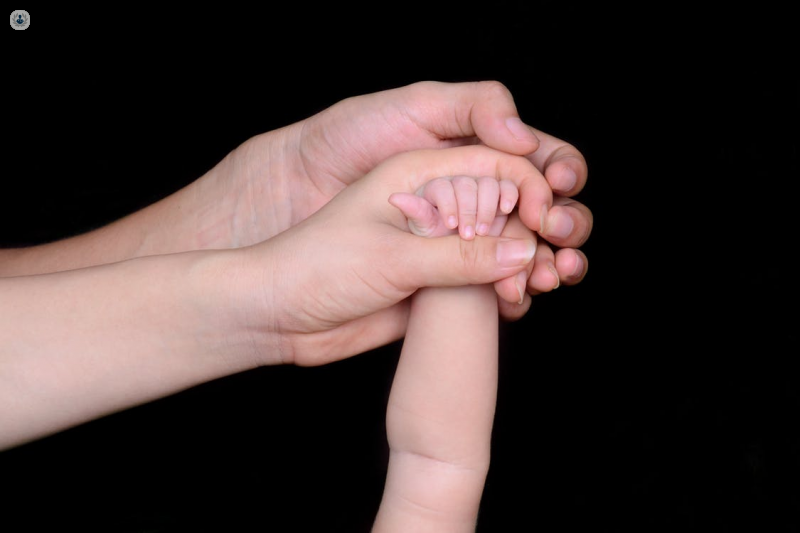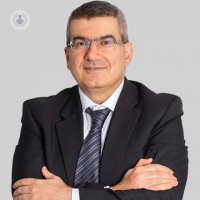Can I freeze my eggs after breast cancer treatment?
Written in association with:Here, leading fertility specialist, Dr Muhammad Fatum, reveals which cancers can lead to infertility in both men and women, and whether or not fertility treatments can possibly lead to the development of cancer.

Which cancers can lead to infertility?
Certain types of cancer and their treatments can have the potential to affect fertility in both males and females. The main ones include the following:
- testicular cancer
- ovarian cancer
- cervical cancer
- uterine cancer
- haematological cancers (leukaemias and lymphomas)
- breast cancer
It's important to note that not all cancer treatments will lead to infertility, and the impact can vary from person to person. Consulting with a fertility specialist together with an oncologist is crucial when it comes to understanding the potential risks and exploring fertility preservation options, ideally before cancer treatment.
What are fertility preservation treatments?
Fertility preservation treatments are medical interventions aimed at preserving a person's reproductive potential for the future. These treatments are particularly important for individuals facing conditions or treatments that may compromise their fertility.
It's important to note that the suitability and availability of these options can vary based on factors such as the individual's age, cancer diagnosis, and treatment plan. It is advisable to consult with a fertility specialist or reproductive endocrinologist who can provide personalised guidance on fertility preservation options based on individual circumstances.
Common fertility preservation options include:
- egg or sperm freezing
- embryo cryopreservation
- ovarian tissue freezing
- testicular tissue freezing
- GnRH analogs
- fertility-sparing surgery
Does freezing my eggs increase the risk of health problems for my baby?
Current evidence suggests that the use of frozen eggs for fertility treatment does not significantly increase the risk of health problems for resulting babies. Egg freezing techniques have significantly advanced over the years, and the use of vitrification (a fast-freezing method) has improved the success rates of egg thawing and subsequent fertilisation.
Can fertility treatments lead to cancer?
Fertility treatments have been extensively studied, and current evidence does not indicate a significant increase in the risk of developing cancer because of these treatments. However, long-term research is ongoing to assess the potential risks and benefits.
Certain specific fertility treatments, such as hormonal stimulation and in vitro fertilisation (IVF), involve the use of medications that stimulate the ovaries to produce multiple eggs. While these treatments have been widely used for several decades, studies have not shown a clear association between fertility treatments and an increased risk of cancer.
It's worth noting that some studies have suggested a slightly higher risk of certain types of cancer, such as low malignant potential (borderline) ovarian cancer in women who underwent a high number of ovulation induction cycle fertility treatments. However, these findings are not consistent across all studies, and the absolute risk remains low.
Can I freeze my eggs after breast cancer treatment?
Yes, it is possible to freeze eggs after breast cancer treatment. It is essential to consult with a fertility specialist and oncology team to evaluate the patient’s individual situation and provide personalised guidance.
If you wish to book an appointment with Dr Muhammad Fatum, simply head on over and visit his Top Doctors profile.


